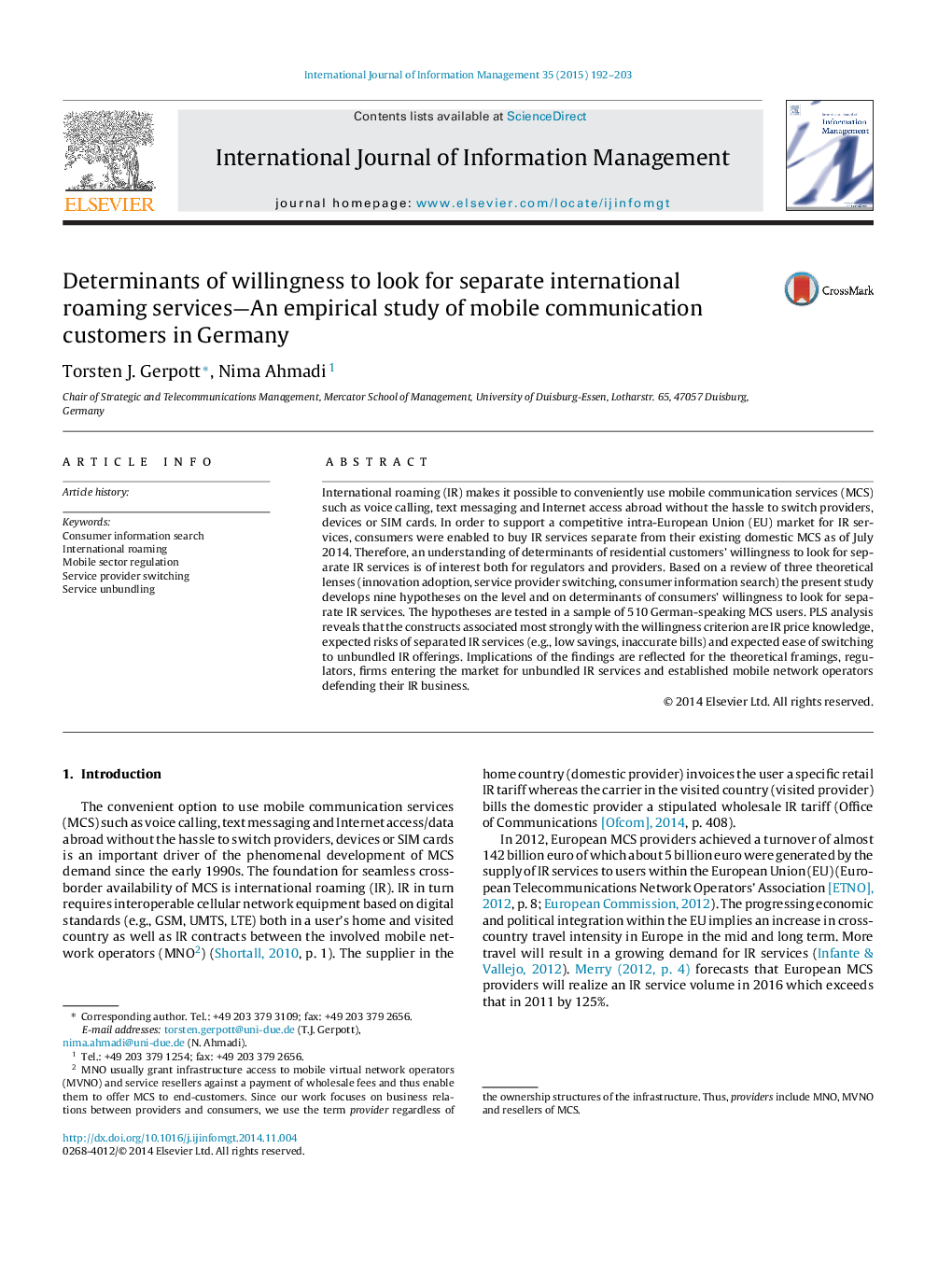| Article ID | Journal | Published Year | Pages | File Type |
|---|---|---|---|---|
| 7429111 | International Journal of Information Management | 2015 | 12 Pages |
Abstract
International roaming (IR) makes it possible to conveniently use mobile communication services (MCS) such as voice calling, text messaging and Internet access abroad without the hassle to switch providers, devices or SIM cards. In order to support a competitive intra-European Union (EU) market for IR services, consumers were enabled to buy IR services separate from their existing domestic MCS as of July 2014. Therefore, an understanding of determinants of residential customers' willingness to look for separate IR services is of interest both for regulators and providers. Based on a review of three theoretical lenses (innovation adoption, service provider switching, consumer information search) the present study develops nine hypotheses on the level and on determinants of consumers' willingness to look for separate IR services. The hypotheses are tested in a sample of 510 German-speaking MCS users. PLS analysis reveals that the constructs associated most strongly with the willingness criterion are IR price knowledge, expected risks of separated IR services (e.g., low savings, inaccurate bills) and expected ease of switching to unbundled IR offerings. Implications of the findings are reflected for the theoretical framings, regulators, firms entering the market for unbundled IR services and established mobile network operators defending their IR business.
Related Topics
Social Sciences and Humanities
Business, Management and Accounting
Management Information Systems
Authors
Torsten J. Gerpott, Nima Ahmadi,
